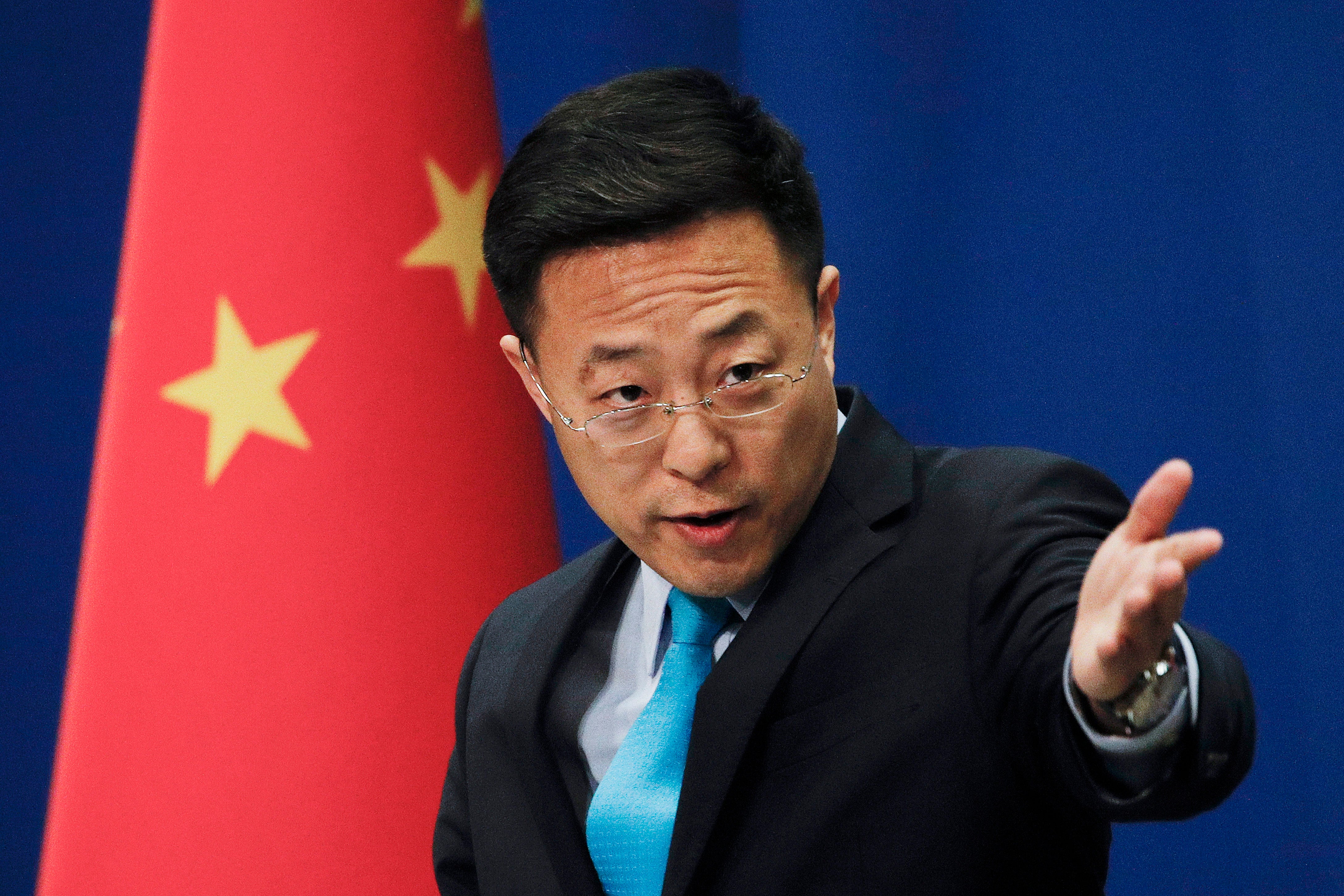China vows more 'friendly consensus' amid Vatican complaints
Beijing and the Vatican are once again tangling over the prickly issue of appointing Chinese bishops

Your support helps us to tell the story
From reproductive rights to climate change to Big Tech, The Independent is on the ground when the story is developing. Whether it's investigating the financials of Elon Musk's pro-Trump PAC or producing our latest documentary, 'The A Word', which shines a light on the American women fighting for reproductive rights, we know how important it is to parse out the facts from the messaging.
At such a critical moment in US history, we need reporters on the ground. Your donation allows us to keep sending journalists to speak to both sides of the story.
The Independent is trusted by Americans across the entire political spectrum. And unlike many other quality news outlets, we choose not to lock Americans out of our reporting and analysis with paywalls. We believe quality journalism should be available to everyone, paid for by those who can afford it.
Your support makes all the difference.Beijing and the Vatican are once again tangling over the prickly issue of appointing Chinese bishops.
After complaints from the Vatican that Beijing was violating a 2018 interim accord, China’s Foreign Ministry spokesperson Zhao Lijian on Monday said the country is willing to expand the “friendly consensus” achieved with the Vatican over bishop nominations.
The Vatican issued an unusually harsh statement Saturday complaining that Beijing on Nov. 24 had installed Bishop John Peng Weizhao as an auxiliary bishop in the province of Jiangxi, which the Vatican doesn’t recognize as a diocese.
China and the Vatican haven’t had diplomatic relations since 1951, following the Communists’ rise to power and the expulsion of foreign priests. The Vatican has sought in recent years to open contacts and reduce frictions, particularly over the appointment of bishops.
At a daily briefing Monday, Zhao said he was unaware of the specific situation involving Bishop Peng, but said that relations between China and the Vatican had improved over recent years for the benefit and “harmonious development” of Chinese Catholicism.
“China is willing to continuously expand the friendly consensus with the Vatican side and jointly maintain the spirit of our interim agreement,” he told reporters.
In its statement, the Vatican said Peng's installation ceremony took place after “long and heavy pressure from the local authorities.”
“In fact, this event did not take place in accordance with the spirit of dialogue,” or what is called for by the 2018 accord, the Vatican statement said.
Since the break in ties, Catholics in China since have been divided between those who belong to an official, state-sanctioned church and an underground church loyal to the pontiff. Estimates of the total number of Chinese Catholics run between 6 million and 12 million worshiping in both the recognized Patriotic Catholic Association and the underground church.
The Vatican efforts toward reconciliation led to its willingness to sign what it admits is a far-from-ideal accord in 2018, which regularized the status of several bishops and paved the way for future nominations. Full details of the agreement never have been made public but Pope Francis has claimed he has final say in the process.
The agreement was seen as a step toward warmer ties that would help fill dozens of empty seats, but it was hotly criticized by many, including by Hong Kong's influential bishop emeritus Cardinal Joseph Zen.
AsiaNews, which follows the Catholic Church closely in China, said Francis had ordained Peng clandestinely as bishop of Yujiang in 2014, four years before the 2018 accord, explaining the Holy See’s lament that he had been named by Beijing to another diocese that it doesn't recognize.
It was the first time the Vatican had explicitly accused Beijing of violating the 2018 accord and came just a month after the agreement was renewed for another two years.
The Holy See said it hoped that “similar episodes will not be repeated.”
Under nationalist leader Xi Jinping, the officially atheist Communist Party has pressured all religions to “sinosize," meaning they must closely adhere to its rulings on all matters and reject foreign involvement.
Strict anti-COVID-19 social distancing and quarantine rules have also seen religious services disrupted for the better part of four years since the virus was first detected in the central Chinese city of Wuhan in late 2019.
___
Associated Press writer Nicole Winfield in Rome contributed to this report.